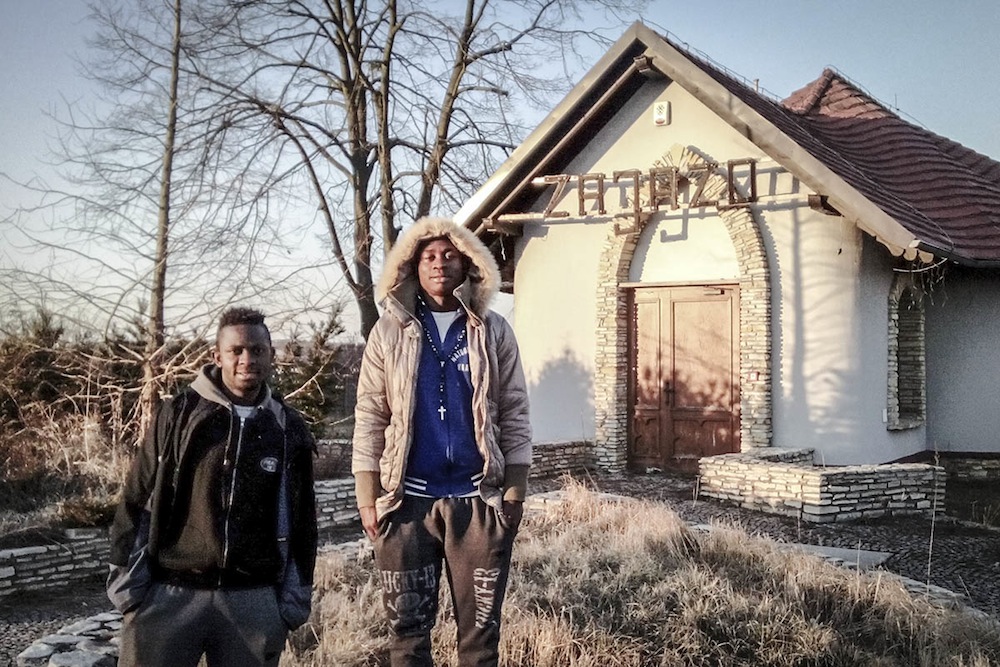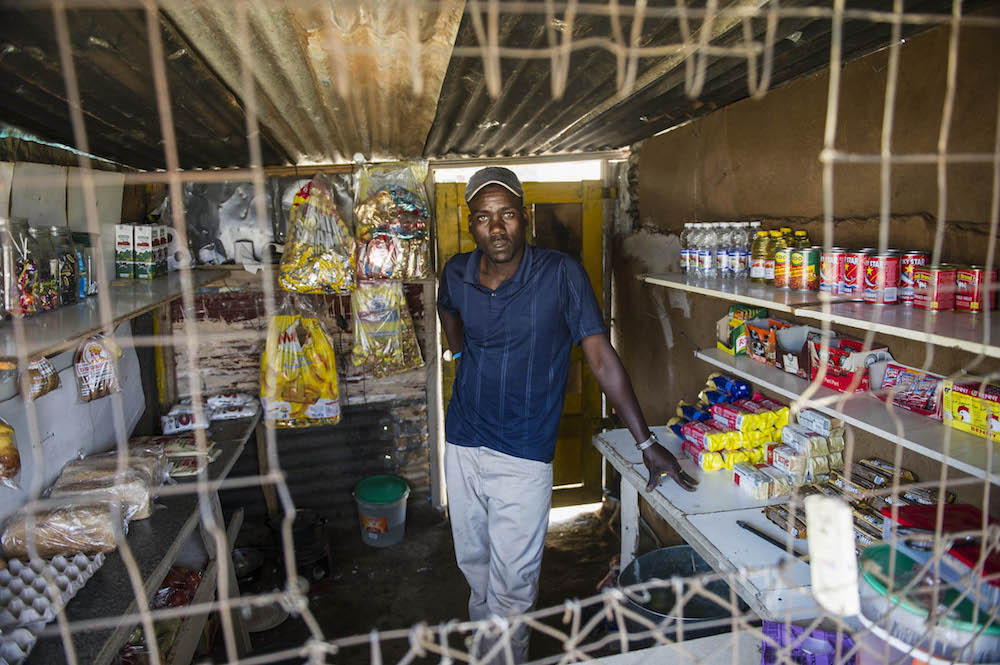Hard life: West Africans who play professional football in Poland rest at half-time.
Many young, aspiring footballers see professional football, a multibillion-dollar global industry, as a pathway out of poverty.
In West Africa, hundreds have joined the football academies that have recently mushroomed all over region, hoping to follow in the footsteps of superstars like Didier Drogba and Samuel Eto’o.
The image of an accomplished high-profile West African football star who embodies the masculine ideal of an independent and responsible adult man, capable of financially supporting his relatives and community, further underpins the shared dream. But these widely circulated images obscure the harsh reality – out of the thousands of young football hopefuls, only a tiny fraction will get a chance to migrate abroad to play football professionally.
And in that fortunate group, only a few make it to clubs in the top leagues of Western Europe. The majority operate on the margins of European football, such as the obscure Polish lower-division clubs, many of which are located in rural areas.
Having overcome being marginalised in one place, these footballers find themselves yet again in a similar position. They expected that reaching Europe would be the end of their struggles, but instead they face low wages, solitude, lack of exposure and meagre prospects of athletic progress.
The wages for playing in the lower divisions depend on the region and the length of stay of a West African player in the country. Some can earn as much as the average Polish wage of about $1 070 a month, but others get less, or even play for free and only receive small bonuses for games won.
Some players are forced to look for extra sources of income to supplement their meagre football salaries. In some cases, clubs provide them with flats or rooms – but of a basic, if not poor, standard.
Clubs in the lower divisions train two or three times a week. Training usually takes place in the afternoon or in the evening, because Polish footballers in the lower leagues work or study during the day. This allows West African players time for extra training on their own initiative – they run, work out in gyms and do football drills.

Cameroonian players Austin and Nelson stand in front of their ‘home’ – a tavern that went bankrupt – in a village in the south of Poland. (Pawel Banas/Global Sport)
Poland as a case study
There are about 100 West African footballers plying their trade in the Polish lower divisions. At the beginning of their stay, they are generally positive and think the hardships are only temporary, in the hope of more lucrative careers elsewhere. In reality, that hardly ever happens.
An 18-month fieldwork study revealed the process – and the less glamorous side of the global football industry in the lower-division clubs in Poland.
In more than a decade, only two West African footballers in the Polish lower divisions have managed to get a contract in a better league. A Burkinabé striker, Prejuce Nakoulma, spent eight seasons in Poland competing in almost all tiers of Polish football before landing up in the Turkish Super League.
The other, Robert Ndip Tambe, was more fortunate. The Cameroonian played in the Polish fourth division for only half a season before he caught the eye of talent scouts and managers and secured a deal in the Slovakian top division.
Over time, players grow increasingly frustrated and realise the impossibility of escaping being marginalised in Polish football. They then look for alternatives, often moving to a place where there is some kind of West African diaspora community.
Warsaw, the capital and the most culturally diverse city in the country, is the most popular choice.
The West African community in the city is small and dispersed, but one spot in the Polish capital plays an important role for West African football migrants. It is an artificial football pitch in one of the city parks, where they have formed an informal community club called PolBlack.It is well organised, with an elected president and a set of rules that its members must abide by, with fines and suspensions for failing to do so.
The West African migrant footballers, and others, meet regularly for training, informal games and some slightly more organised footballing events, such as games between Anglophones and Francophones, or between current professional footballers and former players.
Apart from the obviously sport-oriented character of these get-togethers, the park also serves as a place where West Africans of all trades gather to socialise, celebrate important occasions and do business. They also seek help in finding jobs or dealing with Polish bureaucracy. – theconversation.com

Pawel Banas is part of the Global Sport research team. Global Sport (@GlobalSportUVA) is a multi-sited comparative ethnographic project

West Africans who play professional football in Poland train on a rough pitch. (Pawel Banas/Global Sport)